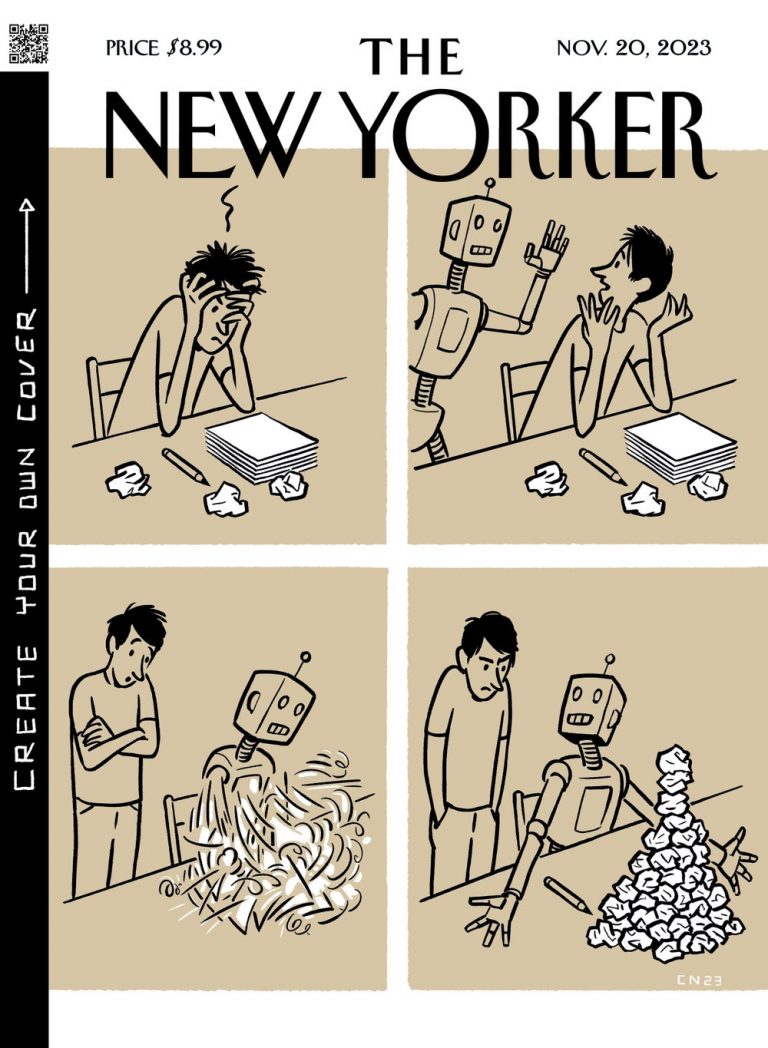Don’t Generalize Generations
In this day and age, it seems you can’t read the Internet without coming across some kind of attention-grabbing headline about how Millennials are destroying an industry, or changing how employers are hiring, or how they present some other obstacle to keeping the world the way it should be. Higher education isn’t any different. In fact, if you were to perform a Google search for “teaching Millennials,” the top article in the search is entitled How Millennials Learn: The 5 Rs and goes through five distinct issues that differentiate Millennials from previous generations, and how a teacher’s pedagogy needs to be adjusted. The problem with the article and generational generalizations (yes, I said that) is that they’re just not true. The article breaks down the strategy as such: teaching needs to be research-based, relevant, rationalized, relaxed, and relatable. All things that are true, but in very different ways than what so many pundits are trying to attribute to Millennials.
Jon Laskaris’ article starts out with quite a statement: “The concept of learner-style is more pronounced in this generation. They prefer materials that are delivered to cater to their visual, auditory, and even kinesthetic needs.” Combine that rationale with the idea that Millennials’ attention spans are shorter–all in bold–and that is the research the authors cite. Problem is, it’s not what the research actually says. The idea that there are visual, auditory, and kinesthetic learners is one of the greatest myths in education. It’s just not how the human brain works. Throughout the 21st century, articles in Science Daily (2009), Educational Research (2008), Journal of Neuroscience (2009), and Journal of Educational Psychology (2006), to name just a few, all found that human beings combine all of these modes simultaneously when learning. When you read, your brain is also “playing” the words to you, spoken in your head, while simultaneously registering the tactile feedback of the book or keyboard. It’s the same with audio-based strategies. Anyone who’s listened to an audiobook can vouch that they “see” the scene in their mind’s eye. So, why do we continue to believe that we need to make separate learning activities to cater to each sense? As for attention spans, why blame Millennials when it was the Boomers and Gen X-ers who invented all of the technology these same generations claim to despise. In her book, Minds Online, Michelle Miller simply sums this up by pointing out that these shorter attention spans are linked to us as a species, not to a certain age group (2014, p. 45). As I like to tell anti-Millennial critics, the 24-hour news cycle wasn’t created by 20-year olds.
The second “R” is relevance, and the article states, “Millennials are aces at ‘googling’ and discovering information. They do not value a piece of information for its own sake, rather for its relevance to their lives.” Well, did you know Iceland declared itself a republic on June 17, 1944, but was its own sovereign state under the Danish Crown since December 1, 1918? Probably not, because that kind of information likely doesn’t have direct relevance to your life. The article got it right about relevance, but this is NOT a Millennial issue. In fact, problem-based learning (PBL) has become very popular in recent years and serves, as Michelle Miller puts it, “to integrate knowledge — that is, build meaningful connections as opposed to just learning collections of disjointed facts” (Minds Online, 2014, p. 139). It’s a strategy that is rooted in the learning sciences and has even spurned its own peer-reviewed journal, Interdisciplinary Journal of Problem-Based Learning. Because human beings naturally gravitate towards applying new information into their pre-existing scaffolding, making things relevant is not just a Millennial strategy.
The next “R” according to the article is a real head-scratcher to me: “Baby boomers or generation X-ers respond well to an authoritarian teaching style. They follow orders for the sake of complying with commands. On the other hand, Millennials were raised in a less authoritative environment – where decisions and actions were constantly justified.” I can attest to my own experience teaching faculty here at Emerson that telling people to learn something “because that’s what the administration says you need to know” and leaving it at that would NOT foster a positive learning environment. The statement that ANY generation responds well to authoritarian teaching styles is pseudo-science at its worst. Now, remember that we’re talking about generational generalizations here. Telling someone to learn something because they need to can work for individuals on a case-by-case basis. But, the research on what motivates students to learn has been pointing to three distinct and basic things: competence, relatedness, and autonomy (Miller, 2014, p. 169). Psychologist Edward Deci began researching motivation in the 1970s, and his work laid the ground for self-determination theory (SDT), which contains the three aforementioned basic pillars of learner motivation. To learn more about current SDT research, be sure to look up Deci’s work in the American Psychologist and the Educational Psychologist.
I’m going to group the final two “R”s, “Relaxed” and “Rapport,” together since they make equally laughable claims. First, let’s tackle the statement that “eLearning course mentors need to create a warm, empathetic, ‘no wrong answers’ collaborative environment.” Again, there is truth to this, but not because Millennials are special “snowflakes.” While many teachers are already familiar with Bloom’s taxonomy of learning, Dr. L. Dee Fink pioneered an additional taxonomy called the taxonomy of signification learning, which has “Caring” as one of its cores. Empathy, values, feelings, and interests have been found to tether learners to the subject matter and create stronger memory bonds. Interestingly, the more negative the emotion, the more it accentuates memory (Miller, 2014, p. 97). Luckily for teachers, positive emotions also help memory encoding. So, there’s no reason to emotionally torture your students, and the article’s advice isn’t terrible. Just remember that calling out a student for a wrong answer in class will lead to embarrassment, which will have a much better chance of solidifying the correct answer in their long-term memory. As for “Rapport,” the article positions that “[w]hen being raised, [Millennials] had complete attention from their parents. They are used to older adults showing more interest in their lives.” What this means, of course, is that the upper-middle class, privileged, two-parent household, white Millennials had complete attention from their parents. Even then, the demographics are spotty. According to the CDC (based on 2014 data), 38 percent of all marriages end in divorce in the United States. Statistics are not on the side of Millennials. Furthermore, from a purely mathematical view, the concept that Millennials need special attention from “adults” is absurd since Millennials now consist of people in their 30s. Treating every student, no matter what their age, as an individual with unique backgrounds is the only reliable way to make sure you connect with them.
Hopefully, you now have some additional vocabulary and concepts to apply to what some effective teaching strategies are for all human beings. As we are on the cusp of the next generation of young adults entering college, let’s strive to reflect on the scapegoating of Millennials, and let’s work to stave off the same mischaracterizations going forward.


